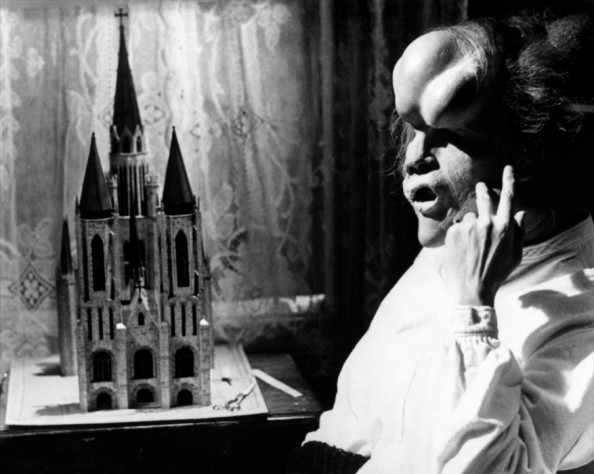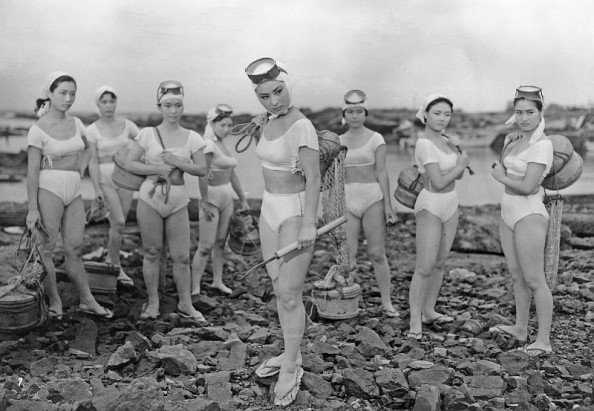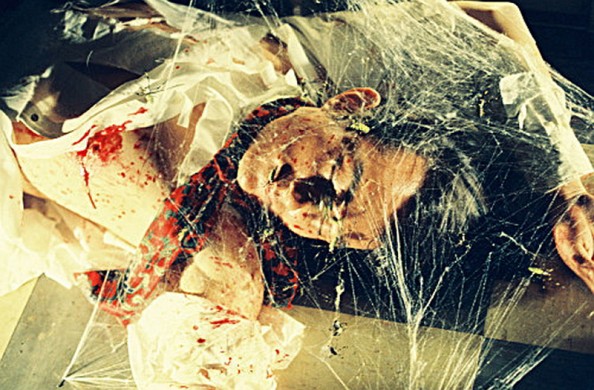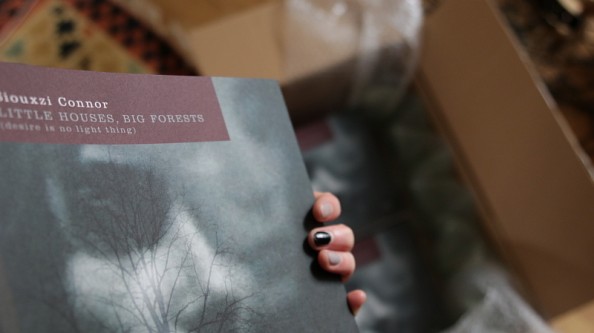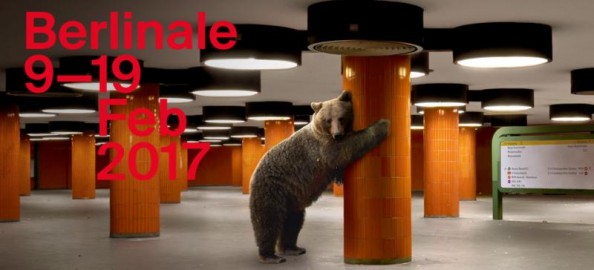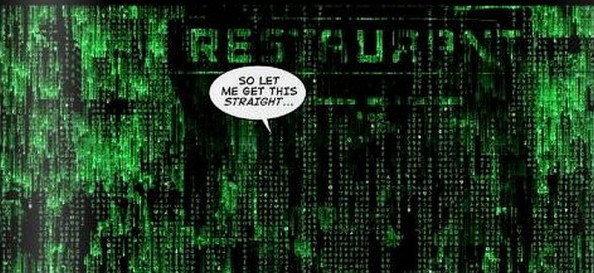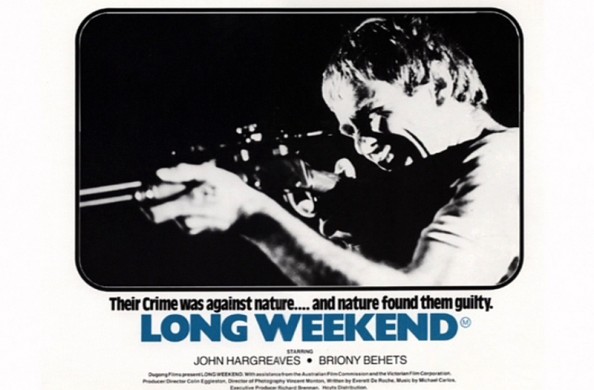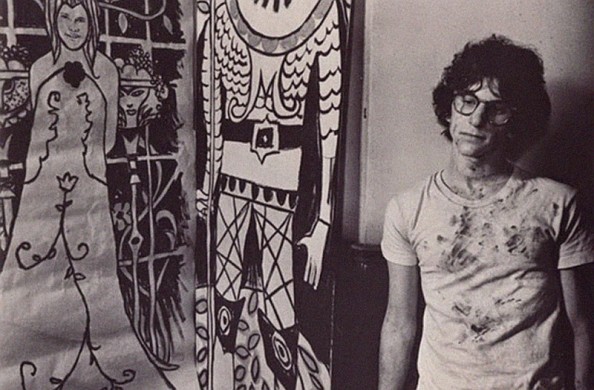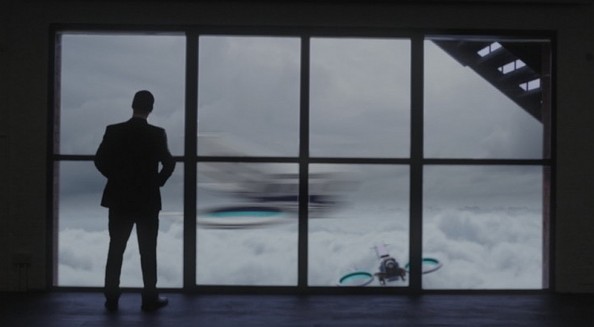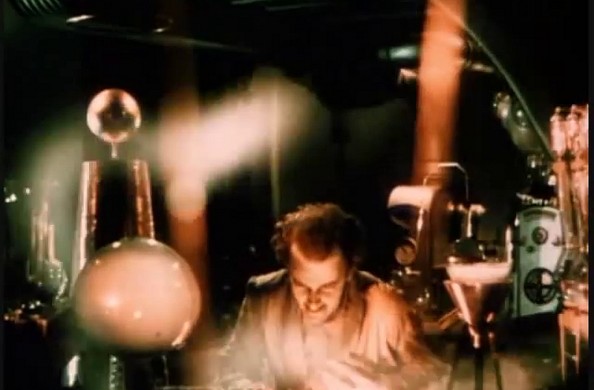
Miskatonic Institute of Horror Studies – London
Instructor: Jon Towlson
Date: 16 March 2017
Time: 7-10pm
Venue: Horse Hospital
Address: Colonnade, Bloomsbury, London WC1N 1JD
Prices: £10 advance / £8 concs / £11 door
Miskatonic website
‘Too dreadfully brutal, no matter what the story calls for […] it carries gruesomeness and cruelty just a little beyond reason or necessity.’ – Review of Frankenstein, Motion Picture Herald, 1931
‘The type of picture that brought about censorship.’ – Review of Mad Love, Motion Picture Herald, 1935
‘Quite the most unpleasant picture I have ever seen […] it exploited cruelty for cruelty’s sake.’ – Review of The Raven, London Daily Telegraph, 1935
Is the thirties horror film more akin to graphic modern horror than is often thought?
Critics have traditionally characterised classic horror by its use of shadow and suggestion. Yet the graphic nature of early 1930s films only came to light in the home video/DVD era. Along with gangster movies and ‘sex pictures’, horror films drew audiences during the Great Depression with sensational screen content. Exploiting a loophole in the Hays Code, which made no provision for on-screen ‘gruesomeness’, studios produced remarkably explicit films that were recut when the Code was more rigidly enforced from 1934. This led to a modern misperception that classic horror was intended to be safe and reassuring to audiences.
Taking a fresh look at the genre from 1931 through 1936, this class examines ‘happy ending’ horror in relation to industry practices and censorship. Early works like Murders in the Rue Morgue (1932) and The Raven (1935) may be more akin to the modern Grand Guignol of The Texas Chain Saw Massacre (1974) and Hostel (2005) than many critics believe.
Tracing the development of classic horror to the deployment — and subsequent censorship — of on-screen ‘gruesomeness’, Jon Towlson will illustrate the discussion with memos, letters and censorship reports from the studio archives and other research conducted for his new book, The Turn to Gruesomeness in American Horror Films, 1931-1936 (McFarland, 2016). Aspects of the topic to be covered in the class will include:
The emergence of the 1930s cycle in an industrial context, showing how various stresses during the Great Depression, such as censorship controversy over sex and crime films, declining audiences and growing opposition to unfair business practices, formed a backdrop of ideological rupture and contradiction in the lead up to horror’s first golden age;
The ways in which cash-strapped studios pushed for increasingly gruesome and sensational screen content to attract audiences, whilst simultaneously placating the Hays Office with moral endings; critics of the genre at the time called such studio tactics ‘Five Reels of Transgression Followed by One Reel of Retribution’;
The pervasive influence of Grand Guignol on the thirties cycle: how filmmakers deployed gruesomeness and brutality through the use of offscreen space, monster make-up, sound, and shadow play;
The changing ways in which the Hays Office responded to gruesomeness in the 1930s, from relatively light interference in the early days to heavily influencing the allowable level of gruesomeness from July 1934 following the Reaffirmation of the Production Code;
How pre-Code horror films were censored for reissue after 1935, and the implications of these becoming the only known versions by a whole generation of fans in the 1950s/1960s;
Why many modern critics have misread the 1930s cycle, and how a re-evaluation of thirties horror based on its transgression has only recently begun to take place.
The class will be illustrated with clips and/ or studio archive material from canonical films like Frankenstein (1931), Dr. Jekyll and Mr. Hyde (1931), The Most Dangerous Game (1932), Dr. X (1932), Island of Lost Souls (1933), Murders in the Zoo (1933), Mad Love (1935), Dracula’s Daughter (1936) and The Walking Dead (1936); as well as from such lesser known titles as Night of Terror (1933), The Monkey’s Paw (1933), Maniac (1934), Black Moon (1934), The Ghost Walks (1934), The Clairvoyant (1935), Condemned to Live (1935), Le Golem (1936) and The Human Monster (1940).
Jon will be signing copies of his book, The Turn to Gruesomeness in American Horror Films, 1931-1936 after the class.
“Ridiculously informative […] This is not only one of the best horror history books I’ve read this year, but stands as one of the best on the golden age ever written” – Gavin Schmitt, THE FRAMING BUSINESS
About the instructor:
Jon Towlson is a film critic and the author of THE TURN TO GRUESOMENESS IN AMERICAN HORROR FILMS, 1931-1936 (McFarland, 2016), CLOSE ENCOUNTERS OF THE THIRD KIND (CONSTELLATIONS) (Auteur/Columbia University Press, 2016) and SUBVERSIVE HORROR CINEMA: COUNTERCULTURAL MESSAGES OF FILMS FROM FRANKENSTEIN TO THE PRESENT (McFarland, 2014). He is a regular contributor to Starburst Magazine, and has also written for the BFI, Paracinema, Exquisite Terror, Irish Journal of Gothic and Horror Studies, Shadowland Magazine, Bright Lights Film Journal, Offscreen and Digital Film-Maker Magazine. Jon contributed to the recent edited collection LOST SOULS OF HORROR AND THE GOTHIC (eds. Bernice M. Murphy & Elizabeth McCarthy, McFarland, 2016). He is currently writing a monograph on the film CANDYMAN for Auteur/Columbia University Press. www.subversive-horror-films.com. @systemshocks
About the Miskatonic Institute:
Named for the fictional university in H.P. Lovecraft’s literary mythos, The Miskatonic Institute of Horror Studies is a non-profit, community-based organization that started in Canada, founded by Kier-La Janisse in March of 2010. The school currently has branches in Montreal and London, with Miskatonic London operating under the co-direction of Kier-La Janisse and Electric Sheep Founder/Editor Virginie Sélavy.
All classes take place at the historic Horse Hospital, the heart of the city’s underground culture. Season ticket is £35 and will be available shortly. Individual class tickets are £10 advance / £11 on the door / £8 concessions and will be available 30 days in advance of each class.
For full details of the next courses please check the Miskatonic website. For all enquiries, please email Miskatonic.london[at]gmail.com.

